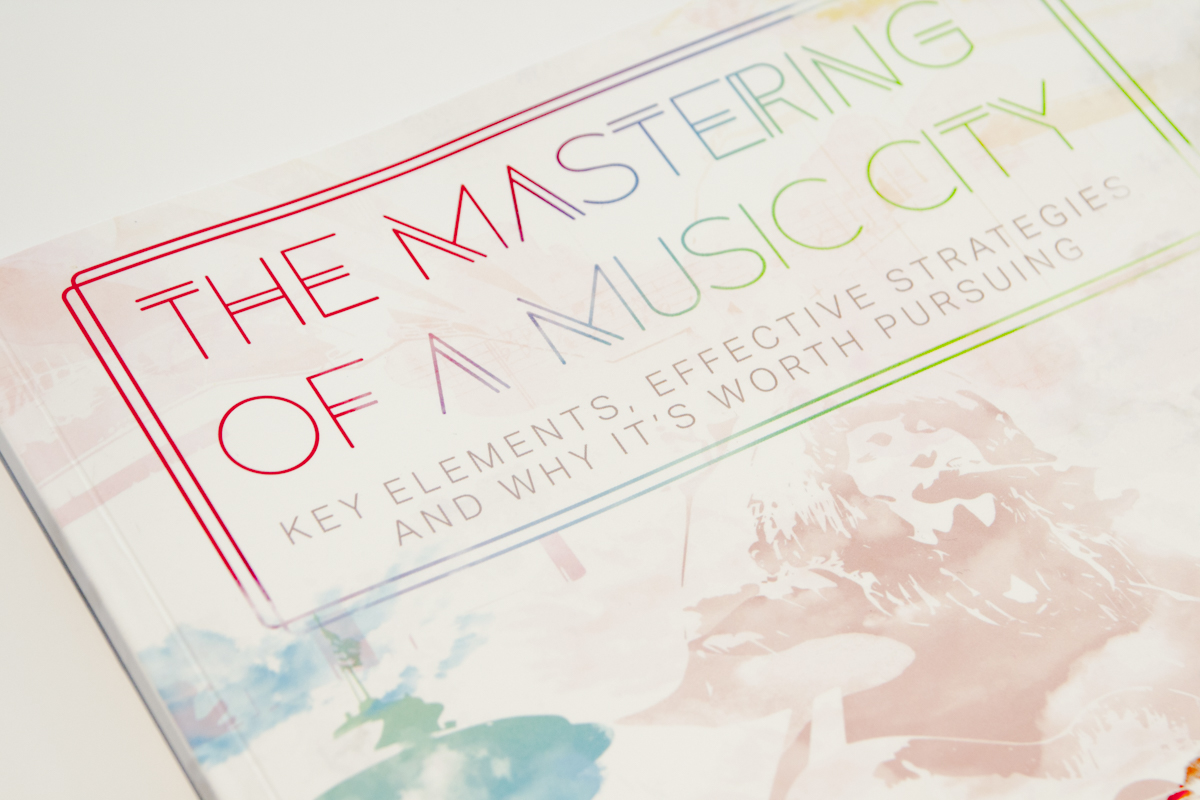This morning, Music Canada’s Executive Vice President Amy Terrill participated in the Standing Committee on Canadian Heritage’s study on Cultural Hubs and Cultural Districts in Canada.
Her remarks, which pulled from Terrill’s extensive Music Cities research, including The Mastering of a Music City report, are included below.
Remarks (check against delivery):
Chair MP Dabrusin,
Distinguished members of the committee,
Thank you for the opportunity to speak with you today. I’d like to commend you on your study as it is an active topic of discussion currently across the country.
My interest stems from my work on Music Cities which we began at Music Canada in 2011.
We define Music Cities as a municipality of any size that has a vibrant music economy which is intentionally supported and promoted.
Since 2014 I’ve led our study of close to 30 international cities and become one of the world’s leading thinkers on the topic. I’ve advised cities on every continent and spoken at countless events. I’m an active member of music city committees in Vancouver and Toronto.
Music Canada published a roadmap for the development of a Music City in 2015 and since then about a dozen Canadian cities or regions have taken that roadmap and begun to develop music strategies – including most recently Ottawa which released a strategy just two weeks ago.
One of the most important components of a Music City is the availability of spaces and places – to rehearse, record, perform – It’s also likely the top issue identified in Canadian communities.
Some of the common concerns that arise in public surveys and focus groups relating to music are:
- Lack of affordable rehearsal spaces; live-work spaces – and housing in general
- Pressure on small grassroots venues – affordability pressures – and pressures that come about from mixed use areas – venue closures are creating gaps in what we call the venue ladder which is needed to adequately incubate artists
- Heavy red tape is also cited
- The need for greater audience engagement
- And greater opportunities to collaborate – to connect with other professionals – both within music – and also across the cultural sectors
Creative hubs and cultural districts can, in their own ways, respond to these commonly identified needs and in so doing accomplish larger policy, economic, or cultural goals.
In our Music City investigation – we have identified three typical formats for creative hubs:
- Hubs that are artist-centric with recording facilities, rehearsal and performance spaces, workshops, access to professional services like lawyers or accountants. The Kitchener Public Library is emerging as a cultural hub of this kind.
- A music business incubator like you might see for other industries providing hot desks, networking events, business development support and training.
- Or a combination of the two; The Music District in Fort Collins Colorado is a great example. 4000 square feet with programming aimed at both of the two groups, plus outreach to the broader community.
Cultural districts, on the other hand, allow municipalities, in particular, the flexibility to design rules and regulations that can be used to nurture creative activities and organizations in a set geographic area.
Both of these tools are ultimately about creating spaces and places for cultural uses.
As you consider this topic and how best the federal government can support them there are two key things I’d like you to remember:
Music spaces are sometimes not what you might expect.
A large portion are not buildings built specifically for a music purpose. Likely half of the inventory is made up of multi-use, repurposed or unusual spaces. Bars, restaurants, coffee shops, libraries, retail spaces, micro-breweries, repurposed industrial properties – to name a few.
In large cities and small towns – places for musical creation and performance are emerging from unique raw materials.
Similarly creative hubs do not fit a tight definition – I encourage you to think in broad terms about what qualifies as a creative hub.
And secondly this network of cultural spaces is composed of a mix of for-profit and not-for-profit– both are critical for the sustenance of our cultural sector.
The same artists who perform at not-for-profit venues, perform at for-profit venues – it really makes no difference.
Our cultural districts are also made up of this mix.
Commercial entities – as an example music venues or music studios – are important tenants in cultural districts and struggle with some of the same challenges facing their non-profit cousins, but typically do not qualify for federal funding programs.
Queen Street West was mentioned in the department’s testimony. One of Queen West’s most iconic and longest-serving operators – the Legendary Horseshoe Tavern – is only able to maintain its space thanks to the generosity of the building’s owners. Should the landlord choose to charge market rent – the Horseshoe could not remain.
Other jurisdictions have recognized the important contributions of the commercial sector – and that they too face affordability pressures – and heightened demands from nearby residents to mitigate sound – and have made loans or grants available to venues to upgrade their facilities or acquire specialized equipment.
This is something that could be considered in an enhanced funding program.
Again – I applaud you for your study.
Thank you and I look forward to expanding on some of these issues in the Q&A.







Music Canada